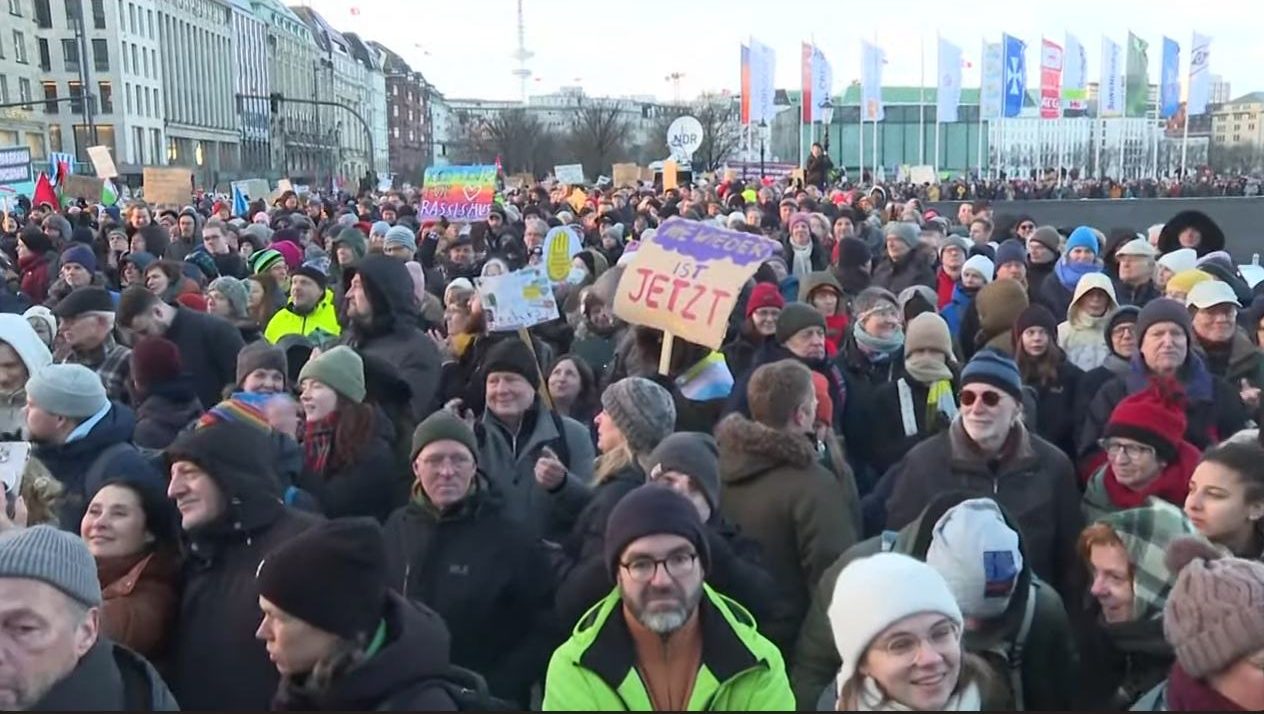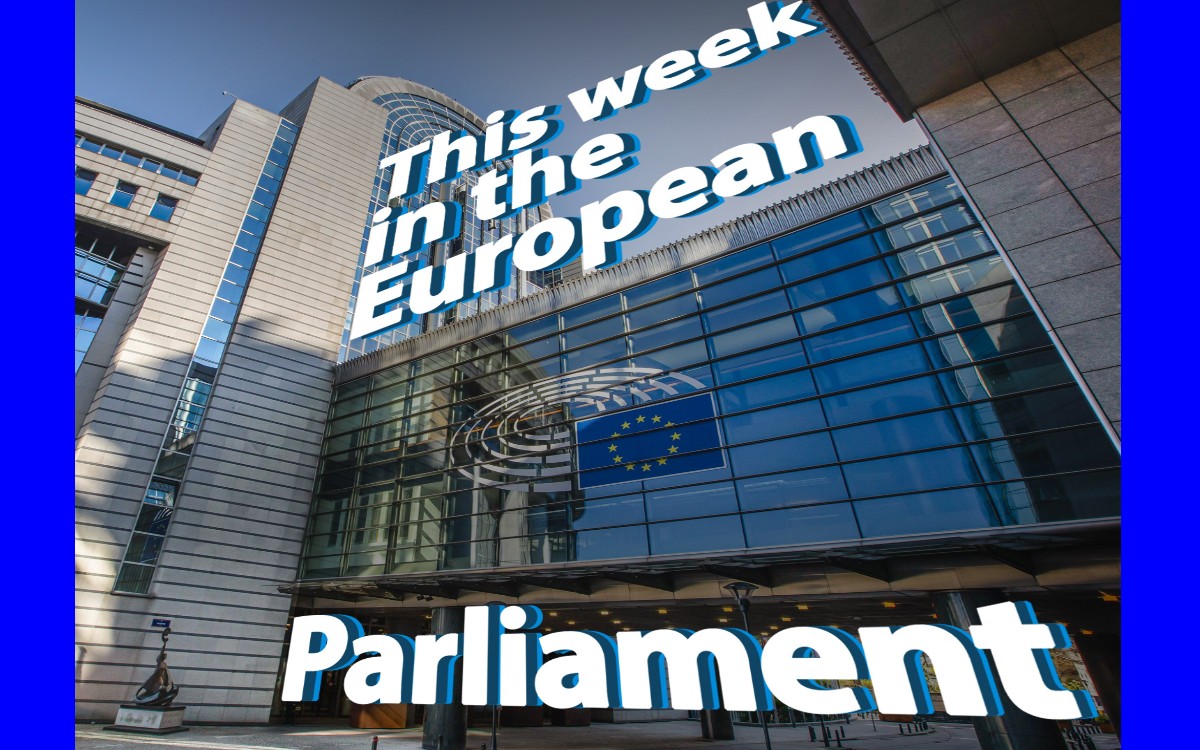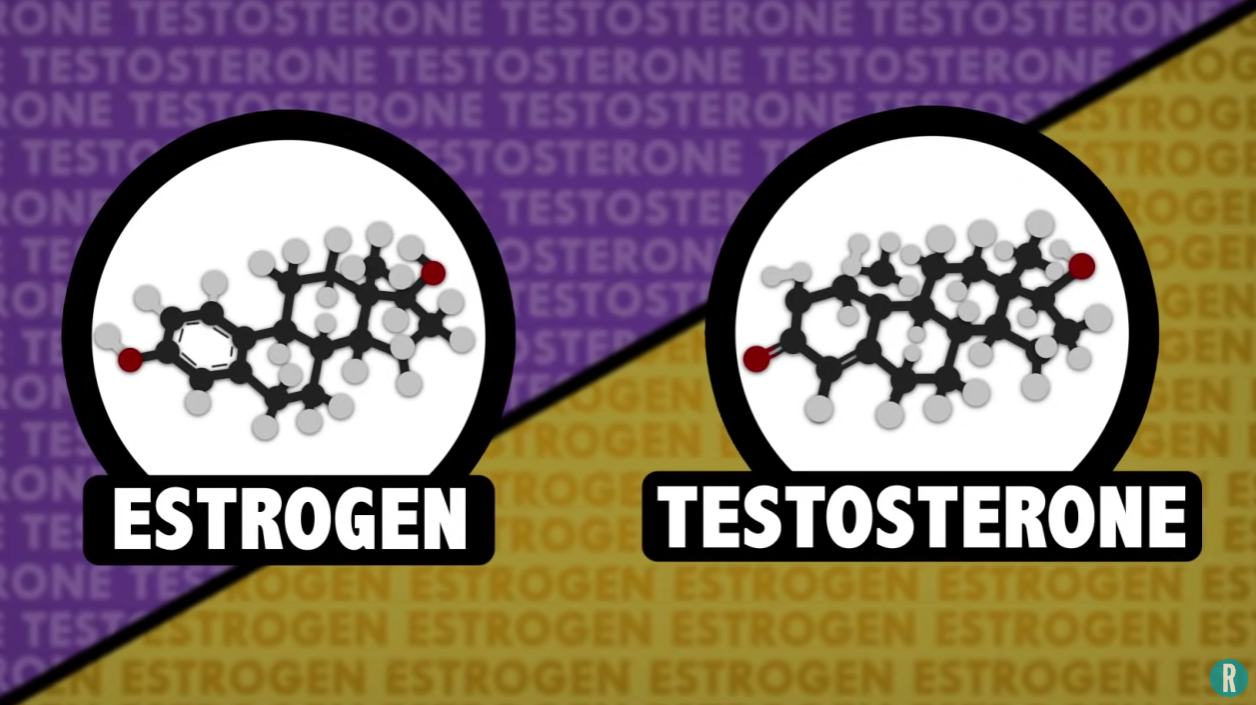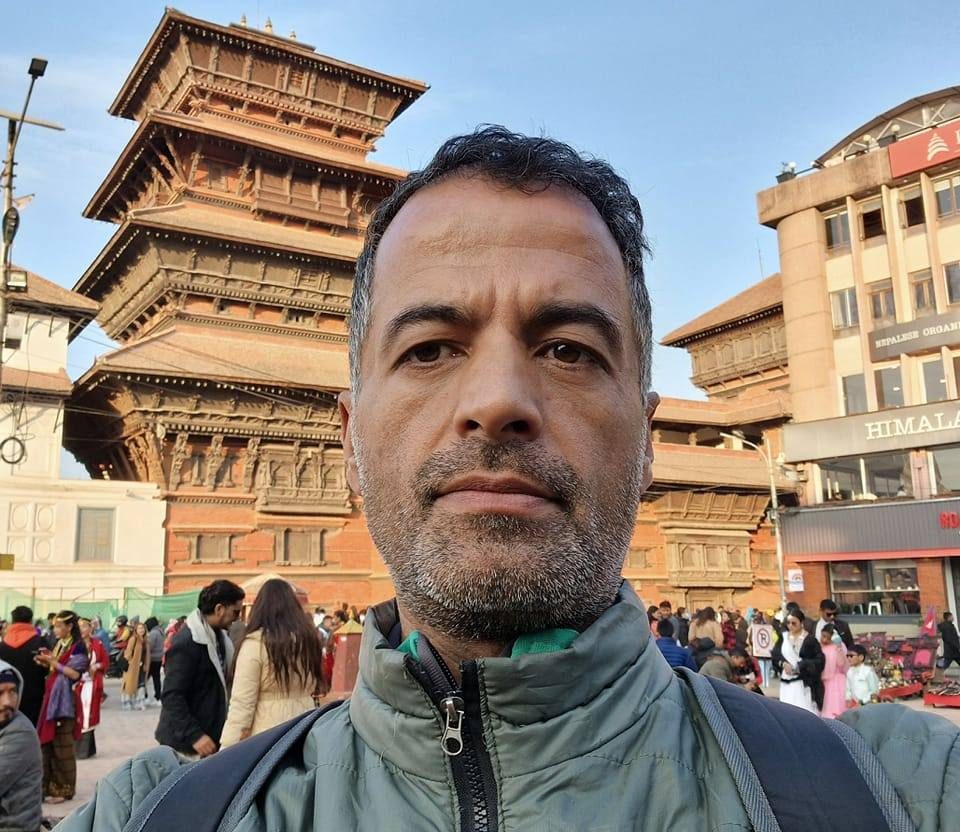World
Out in the World: LGBTQ news from Europe and Asia
Huang Jie is Taiwan’s first openly gay national lawmaker

GERMANY

Rallies attended by hundreds of thousands have taken place in cities around Germany in recent days, after revelations by German investigative media outlet Correctiv that extremist far-right Alternative für Deutschland party, or AfD, has plans for the mass-expulsion of foreign nationals and including German citizens born from migrant parents.
The AfD, co-chaired by lesbian German politician Alice Elisabeth Weidel along with Tino Chrupalla, held an event at headlined by Austrian neo-Nazi activist and author Martin Sellner, where plans regarding the deportation of millions of immigrants of “foreigners,” including citizens deemed not to have adequately “assimilated” into German culture, were discussed.
The AfD has sought to distance itself from the event although Roland Hartwig, a high-ranking member of the party and personal aide to Weidel was in attendance at the far-right gathering this past in November. Hartwig has since stepped down from his position after the disclosures by Correctiv.
In the Correctiv piece, their undercover journalist exhaustively recounts the chilling details of the secret meeting. The problem according to observers and German political strategists is the fact that AfD has steadily gaining influence and popularity. The Associated Press and German Media outlet Deutsche Welle both report that the recent protests also build on growing anxiety over the last year about the AfD’s rising support among the Germans.
The AP noted that the AfD was founded as a euro-skeptic party in 2013 and first entered the German Bundestag in 2017. Polling now puts it in second place nationally with around 23 percent, far above the 10.3 percent it won during the last federal election in 2021.
Last summer, candidates from the AfD won the party’s first-ever mayoral election and district council election, the first far-right party to do so since the Nazi era. And in state elections in Bavaria and Hesse, the party made significant gains.
The party leads in several states in eastern Germany, the region where its support is strongest — including three, Brandenburg, Saxony and Thuringia — that are slated to hold elections this fall.
Last April Germany’s domestic spy agency has classified the youth wing of the country’s far-right AfD party as an extremist entity and a threat to democracy. The decision could deal a blow to the party, which has so far failed in its legal bids to block security agencies from observing it and its affiliates, Deutsche Welle reported.
Although the AfD party co-chair is a lesbian in a state recognized “registered life partnership” as they are termed in Germany, she has stated her opposition to discussion of sexuality prior to puberty saying that “I don’t want anyone with their gender idiocy or their early sexualization classes coming near my children.”
She has also expressed her opposition to legalization of same-sex marriage, stating that she supports protection of the “traditional family” while also supporting “other lifestyles” The AfD itself is not progressive in terms of overall recognition of LGBTQ rights. Last year, the party even proposed a new sexual education curriculum that would significantly reduce the amount of information students receive on homosexuality, DW reported.
HUNGARY

The Hungarian government is not going to change its draconian anti-LGBTQ policies and laws, and its treatment of asylum seekers and refugees despite the European Union freezing billions of Euros and funding because of the unwillingness of Hungarian Prime Minister Viktor Orbán to make changes.
In a press conference on Jan. 18, Gergely Gulyas, Prime Minister Viktor Orbán’s chief of staff, told reporters there were “limits” to reaching an agreement with the EU Commission, its governing executive, since “modifying policies on LGBTQ+ and asylum rights would contradict the will of Hungarian voters,” Gulyas said.
“The Hungarian government is willing to reach an agreement with the commission, but in cases where people have expressed a clear opinion, it would be undemocratic and unacceptable,” Gulyas said, adding that there are “red lines” when it comes to reforms Hungary is willing to make.
“For Hungary, even despite the will of the European Commission, it is unacceptable to spread LGBTQ propaganda among children, and we also cannot abandon our position on migration issues,” he said.
Orbán in his speech at the 32nd Bálványos Summer Free University and Student Camp last July 22, castigated the EU for what Orbán defined as rejecting “Christian heritage.”
The government of the conservative ruling party of the prime minister has been feuding with the EU since passage of Hungary’s anti-LGBTQ education law in June 2021. Orbán, who has publicly proclaimed that he is a “defender of traditional family Catholic values,” has been criticized by international human rights groups as discriminating against LGBTQ people with this law which European Commission President Ursula von der Leyen called a “disgrace.”
“This bill clearly discriminates against people on the basis of their sexual orientation and it goes against all the values, the fundamental values of the European Union and this is human dignity, it is equality and is human fundamental rights, so we will not compromise on these principles,” said von der Leyen.
On the issue over asylum seekers, the AP reported that Hungary’s government has also implemented a policy of turning away asylum seekers at its borders and requiring them to begin their asylum process at Hungarian embassies in Serbia and Ukraine — a practice that was declared unlawful last year by the EU’s top court.
On Jan. 17 von der Leyen said in a statement that EU funds “will remain blocked until Hungary fulfills all the necessary conditions.”
EUROPEAN PARLIAMENT

The European Parliament adopted a report calling on the Council of the European Union to introduce hate crime and hate speech in EU criminal law. The report was adopted on Jan. 18 with 397 votes in favor, 121 against and 26 abstentions.
EU spokesperson Kyriakos Klosidis noted that these are crimes of a particularly serious nature with a cross-border dimension, for which Parliament and council can establish minimum rules to define criminal offences and sanctions.
GCN Ireland reported that currently, each EU member state deals with hate crime and hate speech in criminal law in different ways. Some countries, including Ireland, don’t even have legislation in place to protect people from hate crime or hate speech, or have provisions that only protect certain minority groups while excluding others, such as LGBTQ people.
“Parliament calls on the commission to consider an ‘open-ended’ approach, whereby the grounds for discrimination will not be limited to a closed list, to make sure the rules cover incidents motivated by new and changing social dynamics. It underlines that freedom of expression, as critical as it is, must not be exploited as a shield for hate and stresses that misusing the internet and the business model of social media platforms contributes to spreading and amplifying hate speech.
MEPs also ask for particular consideration to be given to minors, including in bullying in schools and cyberbullying, and call for a robust framework for victims, with an intersectional approach, training for relevant professionals, and measures to ensure safe access to justice, specialized support and reparations, as well as a safe environment to increase reporting of incidents.”
The National LGBT Federation of Ireland applauded the decision by MEPs:
“We strongly welcome today’s overwhelming vote in the European Parliament calling on hate crime and incitement to be added to EU wide laws. And for LGB and trans and other groups to be fully protected across the EU.”
During the debate prior to the vote, Spanish MEP and Rapporteur Maite Pagazaurtundua said: “In addition to lacking a comprehensive European legal framework to tackle hate speech and hate crime, we are facing new social dynamics, through which the normalization of hate evolves very quickly.”
“We must protect ourselves as a society and the people who are attacked, persecuted and harassed, while responding to the radical networks and extreme polarization that provide fertile ground for behaviors that violate fundamental rights,” Pagazaurtundua continued.
“We ask the council to finally give the green light to the legislation against hate crime and hate speech at EU level, always in accordance with the principle of proportionality and guaranteeing citizens’ freedom of expression.”
UNITED KINGDOM

The privately run Gender Plus Hormone Clinic has been approved by the Care Quality Commission, the UK’S independent regulator of health and social care, to prescribe hormones to patients aged over 16.
The clinic announced that hormone prescriptions will be available to transgender and non-binary patients aged 16 and older in line with current NHS gender service specifications for adolescents and adults.
“We are thrilled to announce that we are now Care Quality Commission (CQC) registered. We are the first independent child gender care service to achieve this and our hormone clinics are officially open. Regulation by the CQC ensures health and social care services in England are safe, effective and well-led, providing compassionate, high quality care,” the clinic said in an Instagram post.
Doctor Aidan Kelly, a clinical psychologist specializing in the area of gender identity, and the director of Gender Plus told GCN [Gay Community News- Ireland] in a November essay, “First and foremost transgender and gender diverse (TGD) people need care and compassion, to be respected and to feel heard. There are sadly a higher number of psychological and social difficulties faced by these individuals and these need to be supported, but this should not be at the expense of being able to access appropriate gender healthcare.”
PinkNewsUK reported a statement on the clinic’s website reads: “Regulation by the CQC ensures health and social care services in England are safe, effective and well-led, providing compassionate, high-quality care.”
“The Hormone Clinic is the only English independent gender child care prescribing service to be regulated by the CQC.”
The announcement comes just a few weeks before the NHS’s only gender-identity service for trans minors in England and Wales is scheduled to shut down.
BBC News reports that young people seeking gender-affirming care currently face a five-year wait time for their first appointment through the NHS.
TAIWAN

A 30-year-old political independent representing the Fongshan District on the Kaohsiung City Council won election this past week to the island nation’s unicameral legislature, the Legislative Yuan, making history as Taiwan’s first openly gay legislator.
Kaohsiung City Councilor Huang Jie was elected to the Legislative Yuan as a candidate of the Democratic Progressive Party to represent the sixth constituency [Legislative District] of Kaohsiung City.
Huang obtained 113,670 votes, or 51.01 percent of the vote, while her main rival, the Kuomintang’s Chen Mei-ya, a five-term city councilor, received 93,750 votes, or 42.07 percent, according to the final vote count released by the Central Election Commission.
English Language Media Outlet Focus Taiwan reported:
Thanking voters for their support and her campaign team for their hard work, the young politician said the “Kaohsiung spirit” — the willingness to give young, hardworking people opportunities to serve — had prevailed.
Winning the election is not the end, but the beginning of responsibility, she said.
“I will continue to safeguard [the wellbeing of] Kaohsiung and work to make it a place that shines internationally,” she added.
Focus Taiwan reported that in April 2023, Huang shared her coming out experience with the public. She said that she had not come out publicly when first starting her political career, but after she did, some voters had told her that she had given them courage.
Huang added that people campaigning for her recall had attacked her for being gay, which made her realize that there still needed to be advancements in Taiwan’s society in terms of ensuring equality for all and that she hoped to promote that through her involvement in politics.
NEPAL

Sunil Babu Pant, a Nepali human rights activist, monk, and former politician who served as a member of the Nepalese Constituent Assembly, was appointed the first-ever cultural emissary for LGBTQ-inclusive tourism in Nepal by Nepal Tourism Board at an event held at its office in the capital city on Jan. 19.
In a statement issued by the Nepal Tourism Board announcing his appointment, the board said, “This title has been conferred on Pant for his continued dedication and passion for initiating inclusivity and diversity within the tourism industry in Nepal.”
The board also noted in its certificate of appointment: “Pant’s role as cultural emissary holds significance in advocating for LGBTIQA+ tourism. By taking on this position, you have the opportunity to create a positive impact on both local and international levels, inspiring others to embrace the principle of equality and acceptance.”
“As a cultural emissary, we believe you will raise more awareness about the LGBTIQA+ issues, encourage LGBTIQA+ friendly policies and promote LGBTIQA+ friendly destinations and experiences,” the board stated.
“Your expertise and influence will undoubtedly contribute to the growth of pink tourism and help create a more inclusive and diverse travel industry,” the board added.
“I am grateful to the NTB for this opportunity,” Pant told the Himalayan News Service. “I will promote Pink Tourism along with justice and equality for the LGBTIQA+ communities in Nepal, in Asia, and around the world.”
Pant is the executive director of Mayako Pahichan Nepal and the former executive director, CEO, and founder of Blue Diamond Society, the first LGBTQ+ rights organization in Nepal.
Additional reporting by Correctiv, the Associated Press, Deutsche Welle, M1, GCN Ireland, Agence France-Presse, the BBC, PinkNewsUK, Focus Taiwan and the Himalayan News Service.
United Nations
UN Human Rights Council extends LGBTQ rights expert’s mandate
29 countries voted for resolution

The U.N. Human Rights Council on Monday extended the mandate of the United Nations’ independent LGBTQ rights expert for another three years.
The resolution passed with 29 countries (Albania, Belgium, Bolivia, Brazil, Bulgaria, Chile, Colombia, Costa Rica, Cuba, Cyprus, the Czech Republic, the Dominican Republic, France, Georgia, Germany, Iceland, Japan, Kenya, the Marshall Islands, Mexico, the Netherlands, North Macedonia, South Korea, Romania, South Africa, Spain, Switzerland, Thailand, and Vietnam) voting for it and 15 countries (Algeria, Bangladesh, Burundi, China, Cote d’Ivoire, Democratic Republic of Congo, Ethiopia, Gambia, Indonesia, Kuwait, Malawi, Maldives, Morocco, Qatar, and Sudan) voted against it.
Benin, Ghana, and Kyrgyzstan abstained.
The U.S. in February withdrew from the Human Rights Council. The Trump-Pence administration in 2018 pulled the U.S. from it. The U.S. in 2021 regained a seat on the Human Rights Council.
Graeme Reid has been the UN’s independent LGBTQ rights expert since 2023. The South African activist, among other things, previously ran Human Rights Watch’s LGBT Rights Program.

South Africa National Assembly Speaker Thoko Didiza on June 17 swore in lesbian feminist Palomino Jama as a new MP.
Jama joins other LGBTQ legislators — including Public Works and Infrastructure Minister Dean Macpherson; Forestry, Fisheries and the Environment Minister Dion George; and Deputy Women, Youth, and Persons with Disabilities Minister, Steve Letsike.
Jama said she will work hard and excel as MP.
“What a great moment to be alive. Thank you youth of 1976, thank you Simon Nkoli, Phumi Mthetwa, Paddy Nhlaphos, Vanessa Ludwig, and others for what you did for the LGBTI people in the 80s and 90s. Lastly, for the fierce fist of the Jamas to always hit where it matters for the people of this country,” said Letsike.
Embrace Diversity Movement, a local LGBTQ organization, said Jama’s inauguration came at an appropriate time, during Pride month.
“Her swearing-in took place during a month of profound significance in June, which marks both international Pride Month and Youth Month in South Africa,” said the group. “Palomino is a seasoned queer activist and dedicated community builder with a distinguished record of leadership and service.”
“The EDM proudly supports Palomino in her deployment to parliament, her presence meaningfully advances youth and queer representation in public office,” added the Embrace Diversity Movement. “We are confident that she will serve the people of South Africa with integrity, courage, and distinction.”
South Africa is the only African country that constitutionally upholds LGBTQ rights. There are, however, still myriad challenges the LGBTQ community faces on a daily basis that range from physical attacks to online abuse.
Letsike in May faced a barrage of online attacks after she released a scathing statement against popular podcaster Macgyver “MacG” Mukwevho, who during a podcast episode in April insinuated that the reason behind popular socialite Minnie Dlamini’s “unsuccessful” relationships were probably due to the bad odor from her genitals.
Letsike, who viewed MacG’s comments as offensive, called for the podcaster to be summoned before parliament’s Portfolio Committee on Women, Youth, and Persons with Disabilities and criticized the local television station that aired the podcast.
X users and other social media subscribers bombarded Letsike with anti-lesbian comments. She, however, was unphased.
Letsike continues to face anti-lesbian comments, even though MacG apologized and the television station on which his podcast had aired cancelled its contract with him.
Israel
Activist recalls experience in Tel Aviv after Israel-Iran war began
Marty Rouse was part of Jewish Federations of North America Pride mission

A long-time activist who was in Israel last month when its war with Iran began has returned to D.C.
Marty Rouse traveled to Israel on June 6 with the Jewish Federations of North America. The 5-day mission ended the night before the annual Tel Aviv Pride parade was scheduled to take place.
Mission participants met with Israeli President Isaac Herzog and several LGBTQ activists in Tel Aviv and Jerusalem. They visited the Western Wall, the Nova Music Festival site, and Nir Oz, a kibbutz in southern Israel that is less than a mile from the country’s border with the Gaza Strip. Mission participants also visited Sderot, a city that is roughly a mile from the Hamas-controlled enclave, a veterans rehabilitation facility, a new LGBTQ health center and the Aguda: The Association for LGBTQ Equality in Israel in Tel Aviv.
Hamas militants on Oct. 7, 2023, killed upwards of 360 partygoers and kidnapped dozens more at the music festival that was taking place at a campground near Re’im, a kibbutz that is roughly 10 miles southwest of Nir Oz. The militants killed or took hostage nearly a quarter of Nir Oz’s residents. They also took control of Sderot’s police station.

Tel Aviv Deputy Mayor Chen Arieli spoke at the mission’s closing party that took place at the Sheraton Grand, a hotel that overlooks Tel Aviv’s beachfront, on June 12.
Rouse and other mission participants planned to stay in Tel Aviv for the Pride parade, which was scheduled to take place the following day. He and Gordie Nathan, another mission participant who lives in Palm Springs, Calif., had checked into a nearby hotel that was less expensive.
“We said our farewells,” recalled Rouse when he spoke with the Washington Blade in D.C. on June 24. “We went to our hotels, and we get the warning, and then all hell broke loose.”
Israel early on June 13 launched airstrikes against Iran that targeted the country’s nuclear and military facilities.
Rouse said mission organizers told him and other participants who remained in Tel Aviv to meet at the Sheraton Grand for breakfast and dinner — Israel’s airspace was closed in anticipation of an Iranian counterattack, and authorities cancelled the Pride parade.
He said he went to bomb shelters at least twice a night for three nights.
Israel’s Home Front Command during the war typically issued warnings about 10 minutes ahead of an anticipated Iranian missile attack. Sirens then sounded 90 seconds before an expected strike.
Rouse and Nathan walked to the Sheraton Grand on June 13 when the Home Front Command issued a 10-minute warning. They reached the hotel in a couple of minutes, and staff directed them to the bomb shelter.
“You know to walk slowly, everything’s fine,” recalled Rouse. “You get 10 minutes, so everything was fine when the alarm goes off.”
Rouse described the Sheraton Grand shelter as “well lit” with WiFi, a television, and air conditioning. He was watching an Israeli television station’s live coverage of the Iranian missile attack when he saw one hit an apartment building in the Tel Aviv suburb of Ramat Gan.
A 74-year-old woman died and her boyfriend was seriously injured.
“I go over to look at the TV, just to watch,” recalled Rouse. “All of a sudden, you watch, and you see one bomb go and land and explode in Tel Aviv on TV. It landed and blew up.”
“I was like, okay, this is real, and so that was scary,” he added.
Rouse said the bomb shelter in the hotel where he and Nathan were staying after the mission ended was far less comfortable.
“It was dark. It was humid. It was hot. It was very uncomfortable,” said Rouse. “You really felt alone.”

Rouse and nearly everyone else on the mission who were in Tel Aviv when the war began left Israel on June 15. They boarded buses that took them to the Jordanian capital of Amman, which is a roughly 2 1/2-hour drive from Tel Aviv through the West Bank.
Rouse described the trip as “like a field trip” until they drove across the Jordan River and arrived at the Jordanian border crossing.
“You walk into this room, and instead of being in a well air-conditioned airport, you’re in this hot, humid, small place in the middle of the desert, packed with people, and those big, large, loud fans and pictures of military people on the walls,” he said. “It was almost like a Casablanca kind of feeling.”
Rouse said Jordanian authorities brought mission participants through customs in groups of 10. A Jewish Federations of North America liaison from Amman who previously worked as a tour guide for A Wider Bridge — a group that “advocates for justice, counters LGBTQphobia, and fights antisemitism and other forms of hatred” — went “behind closed doors” to ensure everyone was able to enter the country.
“It took a really long time,” Rouse told the Blade.

Mission participants arrived in Amman a short time later. They checked into their hotel and then had dinner at a restaurant.
“Now we feel like we’re safe and we’re in Amman,” recalled Rouse. “We’re sitting outside having a beautiful dinner.”
Iranian missiles passed over Amman shortly after Rouse and the other mission participants had begun to eat their dessert. They went inside the restaurant, and waited a few minutes before they boarded busses that brought them back to their hotel.
“No one was openly freaking out, which I was surprised by,” said Rouse.
The group was scheduled to fly from Amman to Cairo at 11 p.m. local time (4 p.m. ET) on June 16. They visited Jerash, an ancient city north of Amman, before their flight left Jordan.
“[The Jerash trip] actually took our minds off of everything,” said Rouse.
A Jewish Federations of North America contact met Rouse and the other mission participants at Cairo’s airport once their flight landed. Rouse arrived at JFK Airport in New York on June 17.
Trump-announced ceasefire ended 12-day war
President Donald Trump on June 23 announced a ceasefire that ended the 12-day war.
The U.S. three days earlier launched airstrikes that struck three Iranian nuclear sites. The ceasefire took effect hours after Iran launched missiles at a U.S. military base in Qatar.
Iran said the war killed more than 900 people in the country.
The Associated Press notes Iranian missiles killed 28 people in Israel. One of them destroyed Tel Aviv’s last gay bar on June 16.
The war took place less than two years after Oct. 7.
The Israeli government says Hamas militants on Oct. 7, 2023, killed roughly 1,200 people on that day when it launched its surprise attack on the country. The militants also kidnapped more than 200 people.
The Hamas-controlled Gaza Health Ministry says Israeli forces have killed nearly 55,000 people in the enclave since Oct. 7. Karim Khan, the International Criminal Court’s chief prosecutor, has said Israeli Prime Minister Benjamin Netanyahu and former Hamas leader Yahya Sinwar, who the IDF killed last October, are among those who have committed war crimes and crimes against humanity in Gaza and Israel.

Rouse upon his return to the U.S. said he “was never as aware of the comfort of another human being than I was during that time.” Rouse affectionately called Nathan his “bomb shelter boyfriend” and even questioned the way he reacted to the missile alerts.
“He’s sitting on the edge of the bed and he goes, okay, I’m going to put on my socks and my shoes, and I say, really? You’re going to put on your socks,” Rouse told the Blade. “The fact that I was nervous, that putting on socks might have changed the direction of our lives, to me was like I can’t believe I said that to him.”
Rouse quickly added Nathan helped him remain calm.
“If I was by myself, those nights would have been long enough,” said Rouse. “It’s a totally different feeling to be with another human that you know than to be by yourself.”

Rouse also praised the Jewish Federations of North America.
“JFNA really sprung into action and started to figure out all options to get us all safely home,” said Rouse. “It was all about logistics. Staff worked around the clock identifying and then mobilizing to get us back to the states. It was a great team effort and I know I speak for everyone in expressing our deep appreciation for their dedication to getting us safely home.”


















